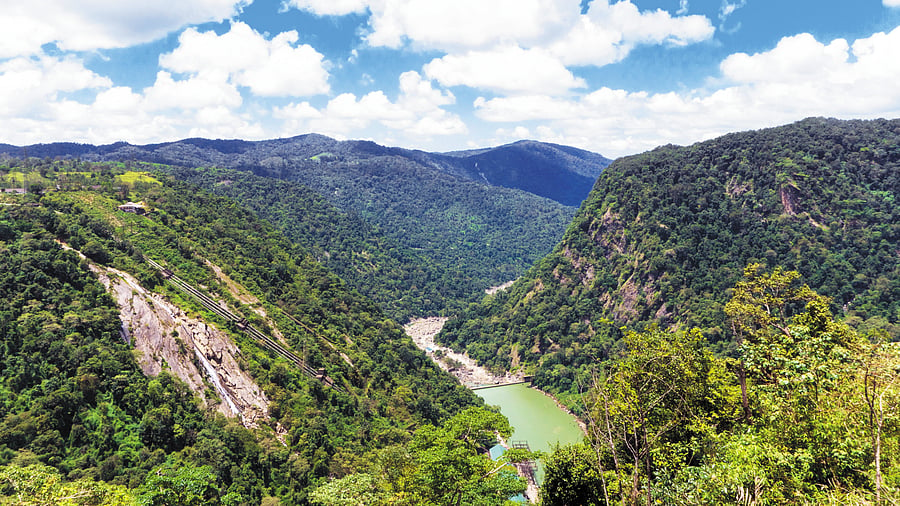
Credit: Special Arrangement
The state authorities have failed to come clean on the violations in the area proposed for the pumped storage project in the Sharavathi Lion Tailed Macaque Sanctuary of the Western Ghats while grossly overestimating the benefits of the Rs 10,200-crore project.
Documents show that the Ministry of Environment, Forests and Climate Change (MoEF&CC) nodal officer last month raised a specific question on any violation of the Forest (Conservation) Act, 1980.
While the Karnataka Power Corporation Limited (KPCL), however, did not reply, a field officer raised several red flags.
Praneetha Paul, an officer from the MoEF&CC regional office, who visited the site, noted in her report that the KPCL has no documents to prove the legal status of the existing infrastructure.
“As per the user agency, the existing transmission line from Gerusoppa to Talaguppa would be used by increasing its capacity. Whether increasing the capacity would further result in felling of additional trees is not known. Moreover, records of whether forest clearance approval has been accorded for the said transmission line is neither available with the Forest Department nor with the user agency. Prima facie, the transmission line erected from Gerusoppa to Talaguppa (which is within the sanctuary limits) appears to be in violation of the FC Act, 1980,” it said.
Through the KPCL, the state government has claimed since early 2023 that the pumped storage project was highly beneficial to Karnataka and the country in that it generates clean energy. Till last month, the cost-benefit ratio estimated by the state stood at never-before-seen 1:2643.2501. The government claimed that for every rupee invested, Rs 2,643.25 benefit will be earned. None of the scrutinising officers in the state forest department questioned it.
On April 27, the nodal officer for MoEF&CC questioned the exorbitant claim. “The state government shall offer their comments,” it said, and pointed to the standard guidelines for calculation of the cost and benefit.
In reply, the chief engineer (civil designs), KPCL, revised the cost benefit ratio to 1:74.65 or Rs 74.65 benefit for every rupee invested. Estimating the “total cost” of the project at Rs 152.56 crore and the net benefit at Rs 11,389 crore.
“The capital cost of the project would be recovered in a time frame of 15 years,” the KPCL said.
Conservationist Akhilesh Chipli noted that the KPCL’s failure to declare the violations indicates several problems. “Besides the old violations, the current proposals avoid providing the details regarding power evacuation.
They can’t build a plant and then move another proposal to seek permission for transmission lines in the thick jungle,” he said.
Pointing to the drastic fall in the benefit, Chipli said even the best-performing companies in the world cannot achieve such a ratio. “First, they took the people for granted. Now, they have taken the system for granted,” he added.
DH sent a detailed query to KPCL Managing Director Gaurav Gupta but did not receive a response.